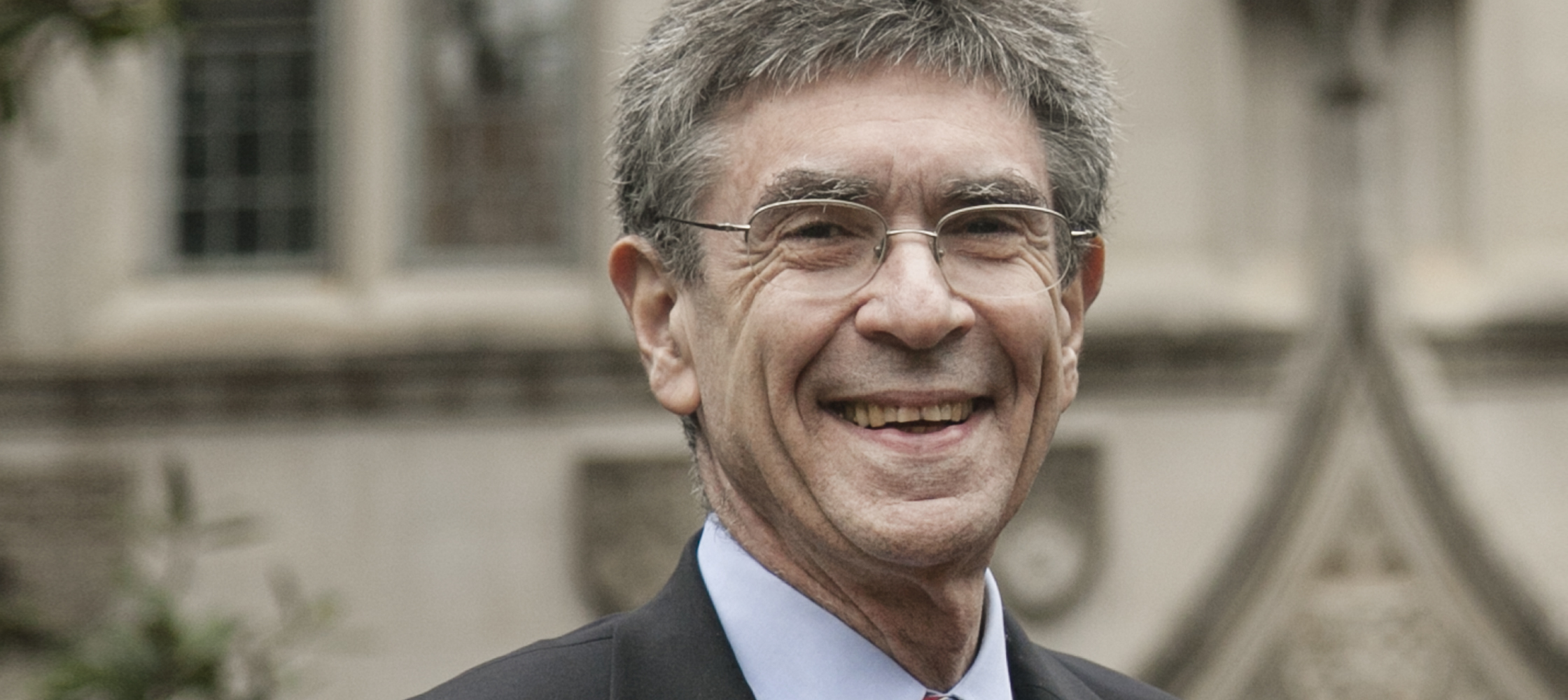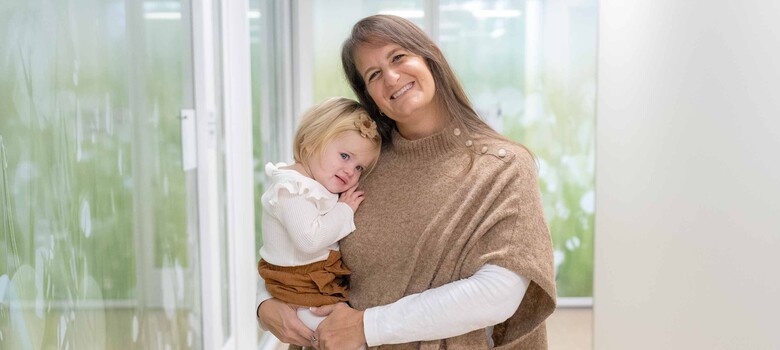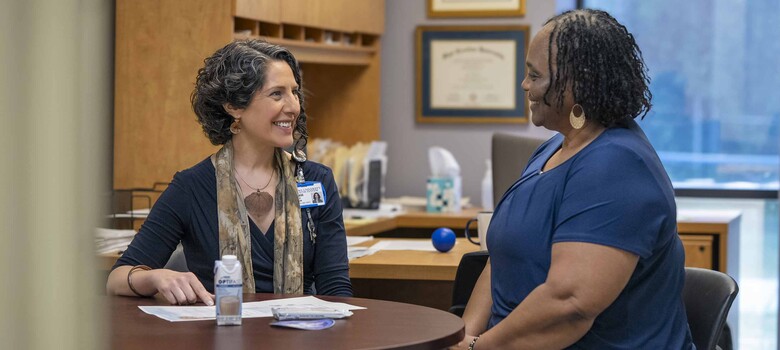 From the DukeHealth.org archives. Content may be out of date.
From the DukeHealth.org archives. Content may be out of date.
Scientist Gets an Assist with Hearing Loss
Discovers Hearing Aids Aren’t What They Used to Be

Dr. Lefkowitz in his Duke University office (Photo: Duke Photography)
Nobel Prize-winning biochemist Robert J. Lefkowitz, MD, had trouble hearing questions in large lecture halls -- until he tried today’s hearing aids.
Dr. Lefkowitz, 74, has received some of the world’s most prestigious honors for his research, which has made possible the development of countless medicines. But, like many people, the Duke professor started to notice a decline in his hearing as he got older. “For a number of years, I have been aware of gradually reduced hearing acuity,” he said. At meetings with his lab group of about 20 researchers, he said, “More and more often I would have to say, ‘Could you say that again?’ While watching TV, I virtually always had the closed-captioning on.”
Dr. Lefkowitz knew hearing aids could help, but he had misgivings. “My mother wore them for years. They were always misfiring and giving off this loud tweeting noise,” he said. Eventually, though, the frustration drove him to seek a solution.
Professional Help for Hearing Loss
Dr. Lefkowitz made his way to Duke audiologist Diane Catalano, AuD, who reviewed the results of his hearing tests and talked with him about what hearing aid options might be best for him, based on his lifestyle and his communication difficulties.
“What was really great was that he was there with his wife,” Catalano said. “We always love to have a familiar communication partner at the appointment. It helps to let us know what, if any, impact the hearing loss is having on the patient.”
Based on that evaluation, Catalano fitted Dr. Lefkowitz with a pair of hearing aids -- ones that feature much-improved technology versus the ones his mother struggled with.

Technology Improves Hearing Aids
“You can hardly see these,” Dr. Lefkowitz said of the tiny aids he now inserts in each ear -- far cry from the large plastic devices he remembers. “There are no batteries to replace. At night, you just put them into a charging box, they charge overnight, and then they’re ready the next morning.”
His hearing aids also allow him to adjust for various environments and sound levels. “I have a remote control that allows me to, with a click, increase or decrease the volume,” he said. “If I’m giving a lecture and taking questions, I keep it in my pocket. If somebody’s talking, and they’re a little too low, I’ll jack it up.”
His hearing aids also have been customized based on the results of his hearing test, so they give a bigger volume boost to those frequencies he has the most difficulty with. Catalano says most modern hearing aids do this. “They’re programmed to each person’s hearing profile,” she said. “Then they’re pretty automatic, in that they adjust depending on your listening environment. So if you’re in a quiet room versus a noisy restaurant, if you’re speaking to someone who’s pretty soft-spoken versus someone who has a loud voice, the hearing aid automatically adjusts for you.”
Overall, Catalano said, technology advances have made today’s hearing aid a better experience for users. “They sound more like people want them to sound, and they feel more comfortable on the ear,” she said. “They’re much smarter than they used to be, so the patient doesn’t have to do too much outside of putting them in and going about their day.”
Breaking Down Barriers to Hearing Improvement
Catalano noted that, like Dr. Lefkowitz, many people who might benefit from hearing aids put off getting them. Some never take that step at all. “There’s still a stigma that hearing loss is a sign that you’re aging,” she said. “Research shows that, from the point people are told they have a hearing loss, the average time until they do something about it is five to seven years.” Unfortunately, people’s quality of life can suffer during that time. “A lot of people will self-isolate, or change doing things they used to love, like their bridge game or going to a bible study, because it’s difficult to participate,” she said.
Others are concerned that they won’t be able to afford hearing aids, which aren’t covered by Medicare. “The reality is that there are a lot of inexpensive options,” Catalano said. “I think a lot of people are pleasantly surprised once they see them, once they hear them, and once they know that less-expensive options are available that will help them.”
Enjoying Life With Better Hearing
As for Dr. Lefkowitz, “I’m very, very happy with these things,” he said of his hearing aids. “They’ve made a real difference in my life.”
He noted that his hearing isn’t back 100 percent and won’t ever be -- but Catalano had cautioned him about that. “I like realistic expectations. And she told me straightaway, ‘This will improve things. It won’t be perfect.’”
Still, the improvement can be dramatic. For example, Dr. Lefkowitz described what it’s like to put his hearing aids in each morning. “Things without them are very quiet; there’s not much going on. Then these things go in and, oh my goodness. I can hear the cat meowing in the next room. I can hear the air conditioning running, birds chirping. It’s like, wow -- everything is right there.”


